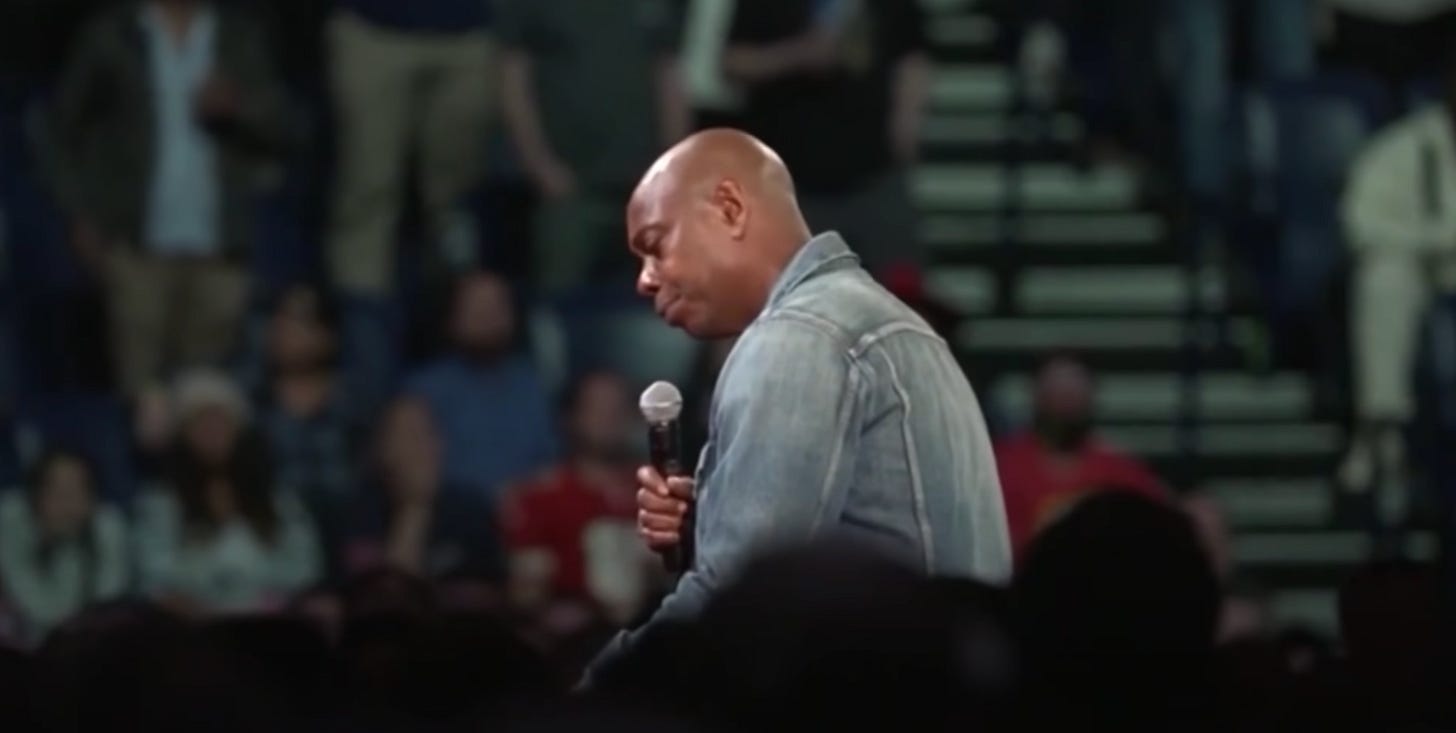The Problem With Dave Chappelle
The political implications of "LOL nothing matters"
Dave Chappelle is right about transgender ideology. He’s right about the disproportionate control that gender ideologues wield over pop culture and public discourse. And he’s also right that most of the people greatly upset by his jokes are white liberals who are more than happy to drop their racial consciousness at the sign of any conflict between mino…



